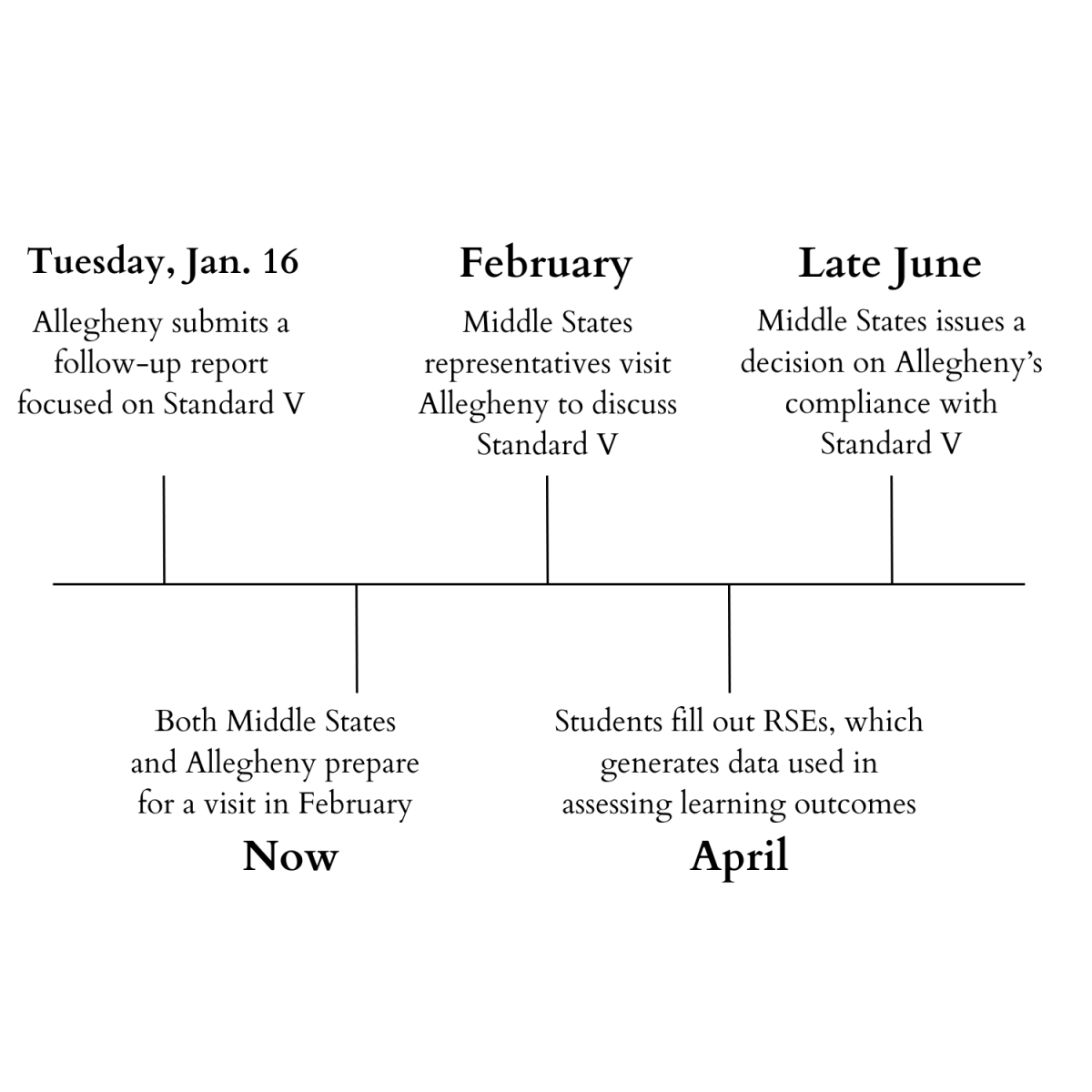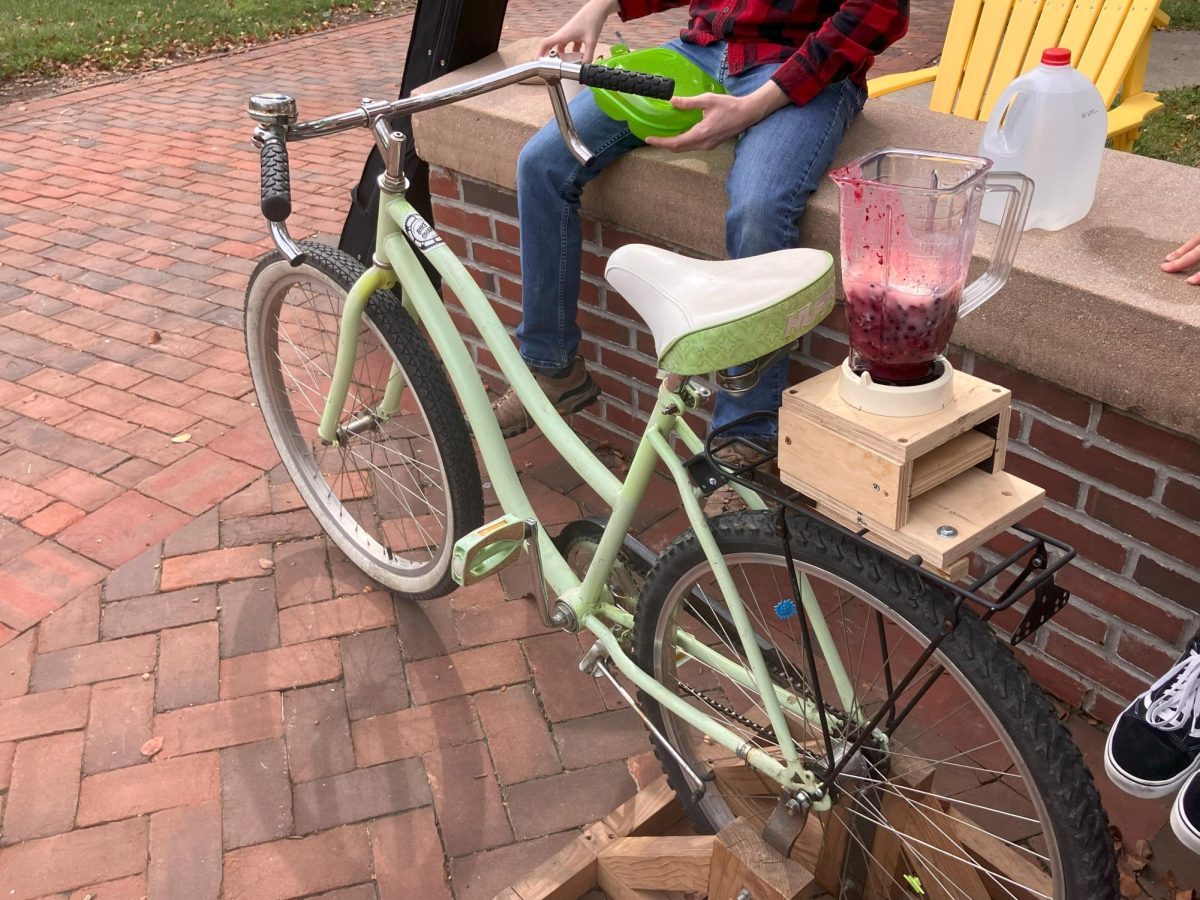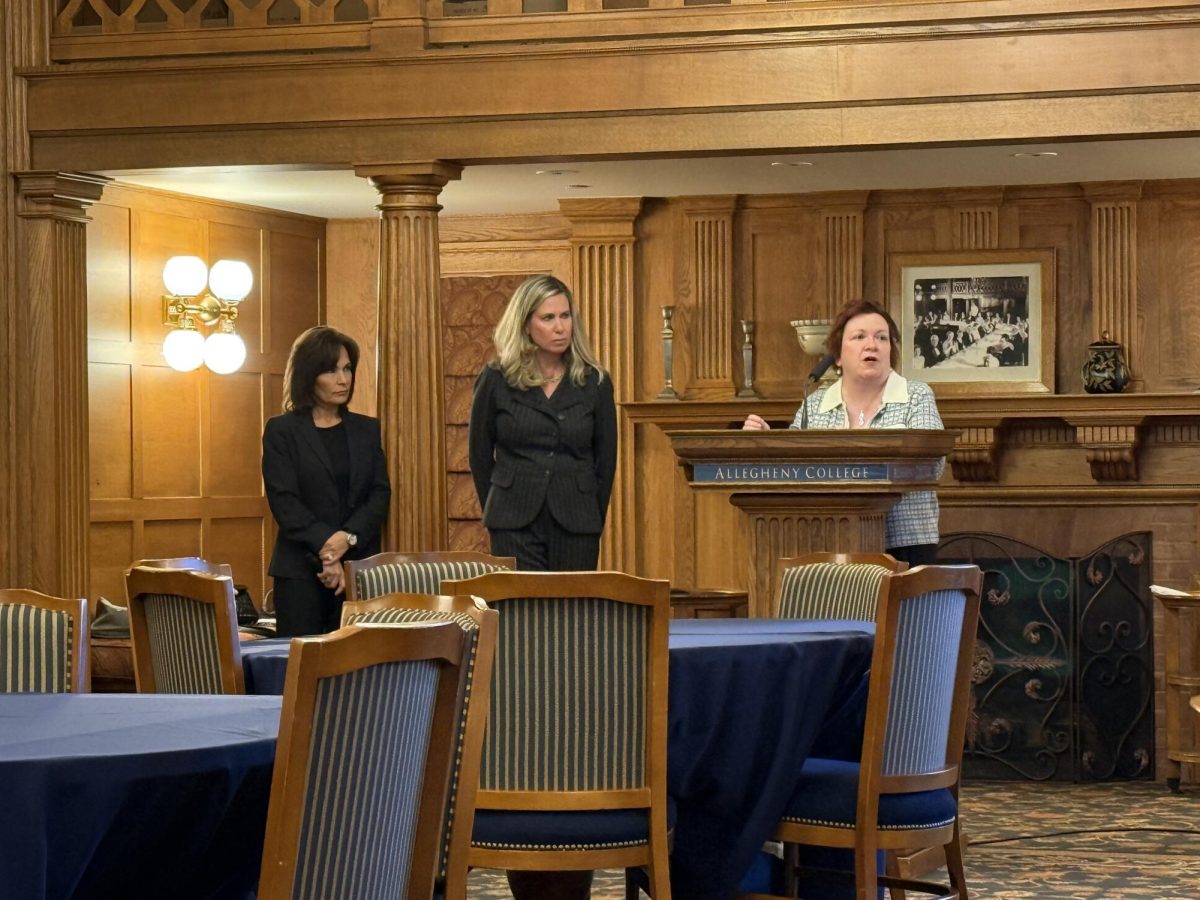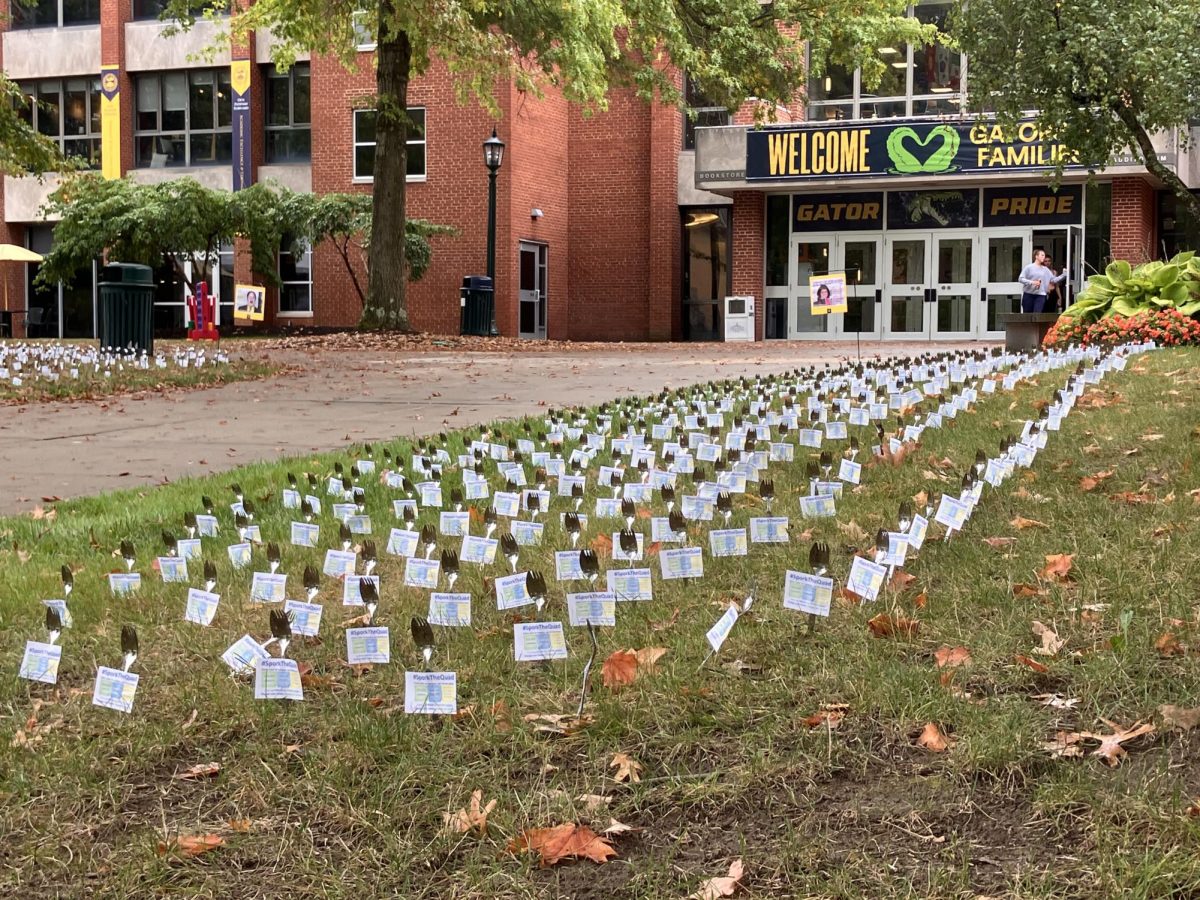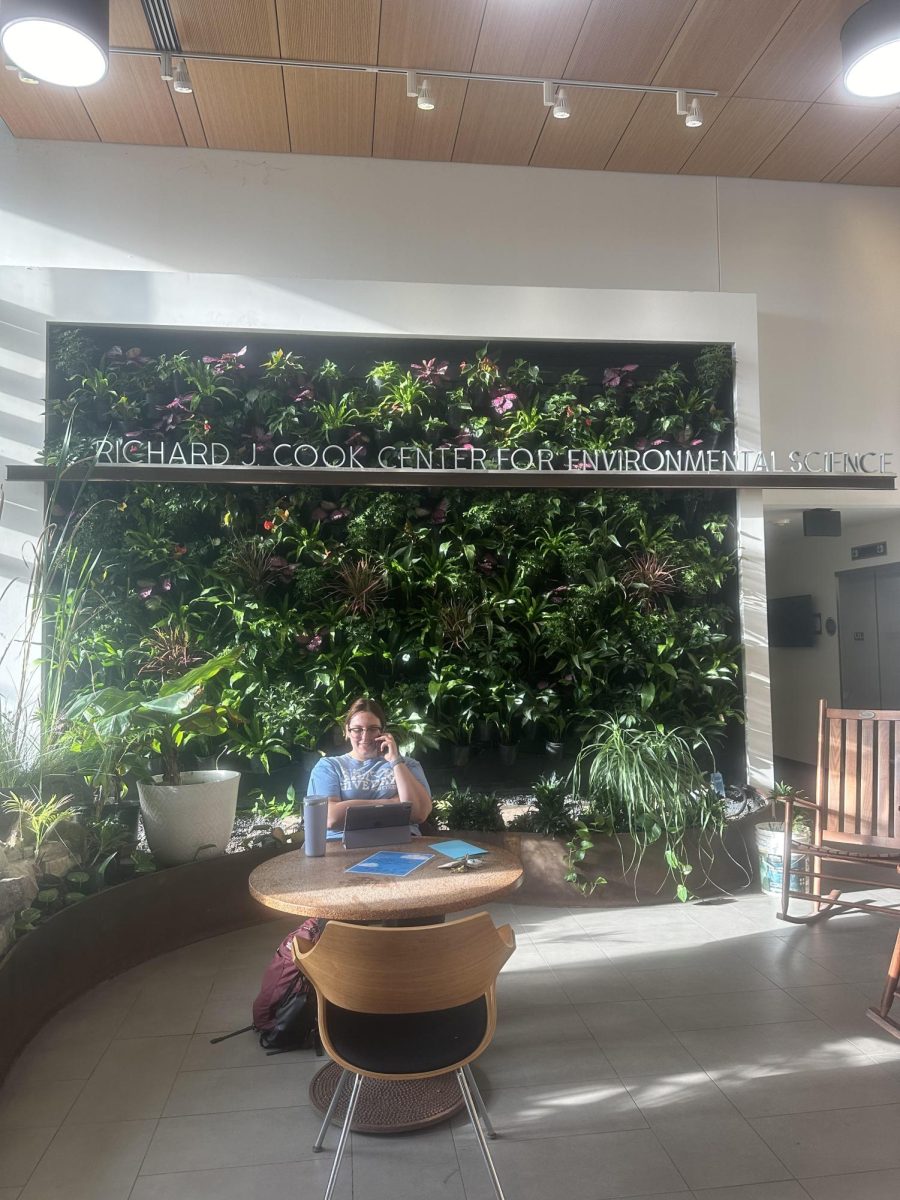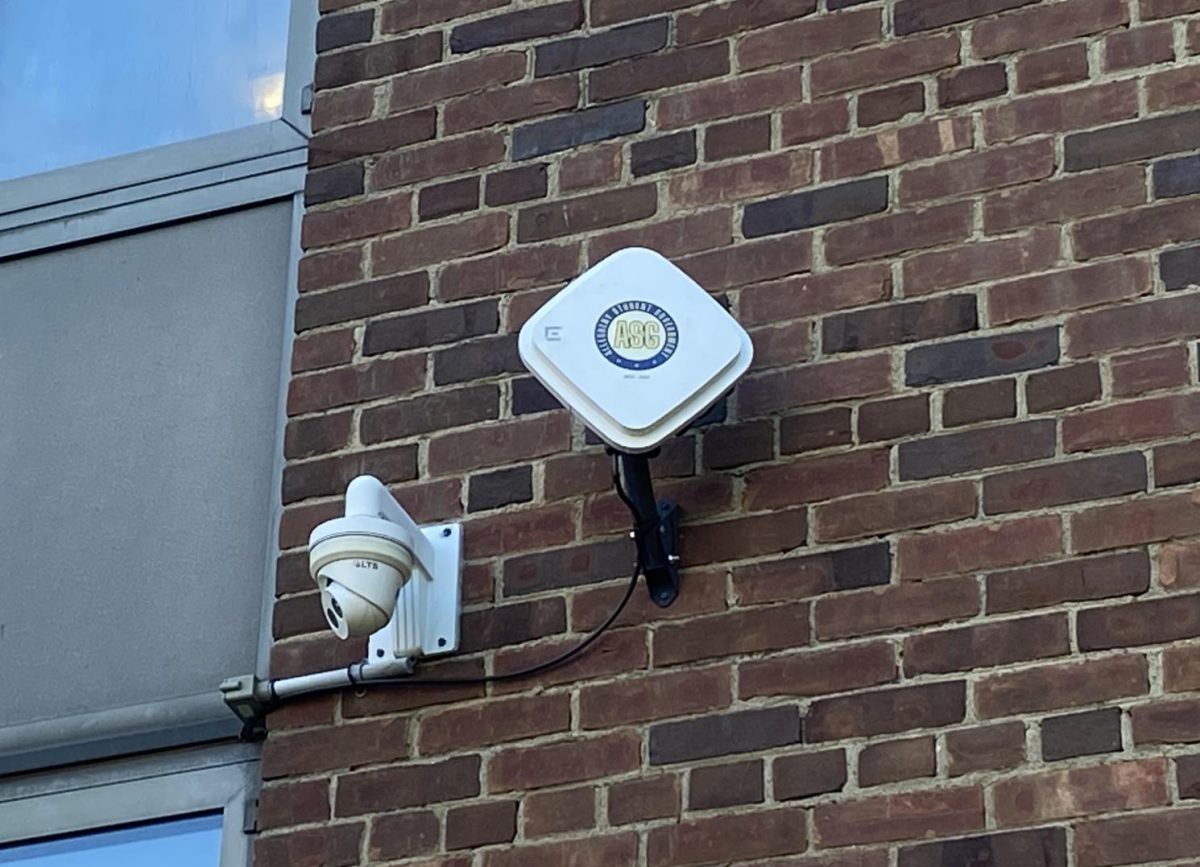Allegheny College submitted a follow-up report Tuesday, Jan. 16 to its accrediting agency, the Middle States Commission on Higher Education. The report is aimed at resolving a Notice of Non-Compliance issued to the college in June of last year, which stated that there was “insufficient evidence” that Allegheny was meeting Middle States’ Standard V.
Standard V relates to Allegheny’s ability to assess its own education and learning outcomes — in other words, how the college can analyze the student experience in and out of the classroom.
The warning came after Allegheny submitted a 107-page report to Middle States in April 2023. That main report was the result of a two-year self-study, and it addressed all seven of Middle States’ standards of accreditation, of which only Standard V was not in compliance.
Senior Associate Provost Jennifer Dearden, a co-chair of the steering committee handling accreditation and co-author of Tuesday’s report, said that Middle States has signaled that the notice is not a dire warning.
“When our representative visited us in September, she helped us understand that the warning that we’re currently on is the least-worrisome thing that we have,” Dearden said. “The reason that it’s a warning is that Middle States feels that we can demonstrate compliance very quickly.”
The report was released on Wednesday, Jan. 17, via an email to the college community, and is available on the college’s website for the accreditation process. The 15-page document — which does not contain the appendices or evidence submitted to Middle States, and is only public to the college community — walks through each criterion of Standard V and details specific changes made for the college to be in compliance.
Associate Provost for Institutional Effectiveness, Strategic Planning and Assessment Peter Bradley, the other co-author of Tuesday’s report, said that the largest change the college has made is the purchase of organizational software from Texas educational firm Watermark Insights.
“It’s really about centralization and documentation,” Bradley said. “(The new software) is where all the assessment data is going, and it’s going in a standard format so that we can clearly show what we’re doing to the accreditors.”
Bradley specifically highlighted the work of the college’s 20 department heads in organizing data collection for the follow-up report.
“As far as data collection goes, it’s almost everyone on the faculty,” he said. “The chairs did a big lift in organizing all of this, so just a shoutout to all the chairs — but yeah, almost all faculty were involved in one way or another in collecting data.”
New committee work
Now that the report has been completed, a new committee will begin to manage the ongoing process of assessment. The Institutional Effectiveness Committee — consisting of two faculty members, two Student Life staffers, two administrators, and Bradley — will serve as an “umbrella committee” to manage assessment across the college.
“The IE committee will largely do the day-to-day — or semester-to-semester — ongoing work of assessment,” Dearden said.
Part of that ongoing work, Bradley said, is the assessment of “co-curricular” programs, or student experiences that occur outside of the classroom.
“Food insecurity is a major issue, and we really do need to know how we’re doing on that,” Bradley said. “So is there a program that covers that that can be assessed on a regular basis? If there is, then we’re going to have that in the system, we’ll get yearly data on it. If not, then we’ll create one.”
The IE committee’s portfolio will cover campus-wide surveys, including post-graduation surveys and the National Survey of Student Experience. NSSE is designed to “provide an estimate of how undergraduates spend their time and what they gain from attending college,” according to the Center for Postsecondary Research at Indiana University’s School of Education. Allegheny plans to administer NSSE next academic year to all first-year and senior students, according to Bradley.
Underneath the IE committee will be an existing faculty assessment committee — now named the “Curricular Assessment Committee” — that will focus on reviewing learning outcomes in the classroom.
A second committee will also be formed to sit underneath the IE committee: the Co-Curricular Assessment Committee, whose exact charge has not yet been written.
Ongoing data collection
The part of regular assessment applicable to students will be data collection, which Bradley said will be most visible in the form of surveys conducting “indirect assessment.”
“It (the survey) will often present the course outcome and say, ‘Do you feel you learned this?’” Bradley said. “We use that data, in comparison to the data that the professors generate about those questions, and you can get a sense if there’s a gap between student perception and the professor perception.”
Perhaps the most well-known assessment instrument is the Report of Student Experience. RSEs are administered for each class towards the end of the semester and include both quantitative and qualitative questions.
Bradley said that students often discount RSEs and similar surveys, despite their status as “the primary conduit of information about the student experience in the classroom.”
“I think a lot of people think that they (the survey data) just go in a drawer somewhere, but faculty really sweat over these things,” Bradley said. “It’s important to know that if something really did not work in your class, the faculty will see that and change it. This is essentially the first line of curricular improvement, is the RSEs.”
“There’s no wrong answers to RSEs,” Dearden added. “Your feedback is valid. Whatever it is, it’s valid.”
Dearden said that the process of gathering data for the entire college will take up to five years. So instead of presenting a completed dataset, the follow-up report submitted this week is more focused on the methods and practices the college has developed to meet Standard V.
“One of the things that we’ve done in the report is try to demonstrate that the processes that we have either refined or newly created in the last six months are designed to help us be what they call sustainable — that we can continue to do this year after year,” Dearden said.
Next steps
Middle States representatives will visit the college Feb. 26-27 to discuss the follow-up report, according to an email sent to the college community Wednesday morning. This visit will include three Middle States representatives and will focus only on Standard V — smaller in scale, Dearden said, than last year’s two-and-a-half-day visit of seven representatives.
A decision on Allegheny’s status is expected by the end of June. That decision can take one of four forms, The Campus reported last September:
– Full reaffirmation of the college’s accreditation.
– Reaffirmation with an additional report.
– A continuation of the warning for an additional year or two to resolve the issue.
– A “show cause” decision, where the college would have to show why it should not lose accreditation. If sufficient cause is not shown, the college can face “adverse action.”
College officials — including President Ron Cole, ’87 — expressed confidence last semester that Allegheny’s accreditation will be reaffirmed in June.
After the June decision, the Middle States steering committee at Allegheny will dissolve until the next accreditation process, scheduled for the 2030-2031 academic year.



